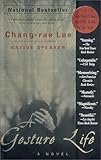The Glass Castle by Jeannette Walls is the convocation book of our university this year. I even enrolled as a volunteer for one of the discussion sessions with freshmen. Well, this was before I read the memoir.
The Glass Castle is a memoir, or so claims its author. As recent studies in this highly popular in the US genre have revealed, there is a lot more than just a simple reflection of memories and real-case situations in most of the memoir texts. So is perhaps the case with The Glass Castle. The suspicion sneaks from the very first pages of the book where the author starts her story by recalling intricate details about events that happened to her when she was three. Let alone the colorful colloquial language which her father uses and she is able to reproduce so well. Stylistically speaking, the embellishment with details of any memory is necessary for the purpose of the effective story-telling. This brings me to the contradiction with this simple rule of thumb. Wall's technique of the first-person telling is apparently interesting and seemingly innovative to many of the thousand American owners of copies of The Glass Castle; however, the choice of the first-person narrator has its limitations which need to be observed for the preservation of a truthful voice. The voice of the first person in the book lacks the distinction between the three-year old and the ten-year old girl; it could be equally trustful if Wall's has decided to give the three-year old girl less narrative skills.
If one can let the flaws of the narrative voice slide by, he will find interesting the changing attitude of the little girl to her parents. In the beginning, Walls trusts everything her parents do and tries to justify it based on the maxima that whatever your parents do is right. Later on in the novel, she tries to control her father's behavior and using his love for her, ask him to stop drinking. In the end, Walls is able to utilize judgmental criteria from the world outside her family to form her standpoint and detach herself from the values of her parents. The first meeting of the reader with her portrays Walls as a grown-up woman living in a fancy Manhattan apartment who sees her mother digging in the dumpster. Walls's lifestyle has changed together with her values while her parents have preserved their principles and still live by them. And there are principles that guide her parents' lifestyle. For I talked to a lot of people who could not even read the book because of the terrible treatment of the parents. I argue that in fact, Jeannette Walls's parents did love their kids and were even educating them so that they could be self-sufficient and able to cope on their own. Love and education certainly have different definitions in this argument. I am still impressed by the fact that both parents were readers and they would spend a good amount of time reading and in the mother's case, painting pictures.
In the end, I do want to lead the discussion designed for freshmen at the beginning of the school year but I am afraid of several misconceptions that I might be ask to take as granted. First, there is no need to completely discard the attempts for education of Jeannette's parents especially since one of the results is The Glass Castle. I wonder how many if any of these freshmen will ever write a book in their lifetime. Second, there have been a lot of comments (go to Amazon and see how many of the 1,091 reviewers contend that!) about the incredible survival skills and the achievements of Walls despite her origin. At this spot people either sign and admit they cannot even read the book or they simply say (unbelievable!) that they assumed that most kids were raised like they were and they couldn't possibly imagine there were children with such difficult childhood. Well, we are talking here mostly about American white middle class audience. Needless to say, those who have had Jeannette Walls's experience rarely get the chance to write a review on Amazon nor on any other website simply because they perhaps have never used a computer or they are way too busy in their Wall Street jobs. Walls has achieved a lot but it is neither despite the educational attempts of her parents, nor she is the only one to have done so. So, people, do not any more try to come up to me and tell me about how you could not read the book since you just cannot stand Walls's parents. How did yours educate you and if they were better, when is your book coming out?




